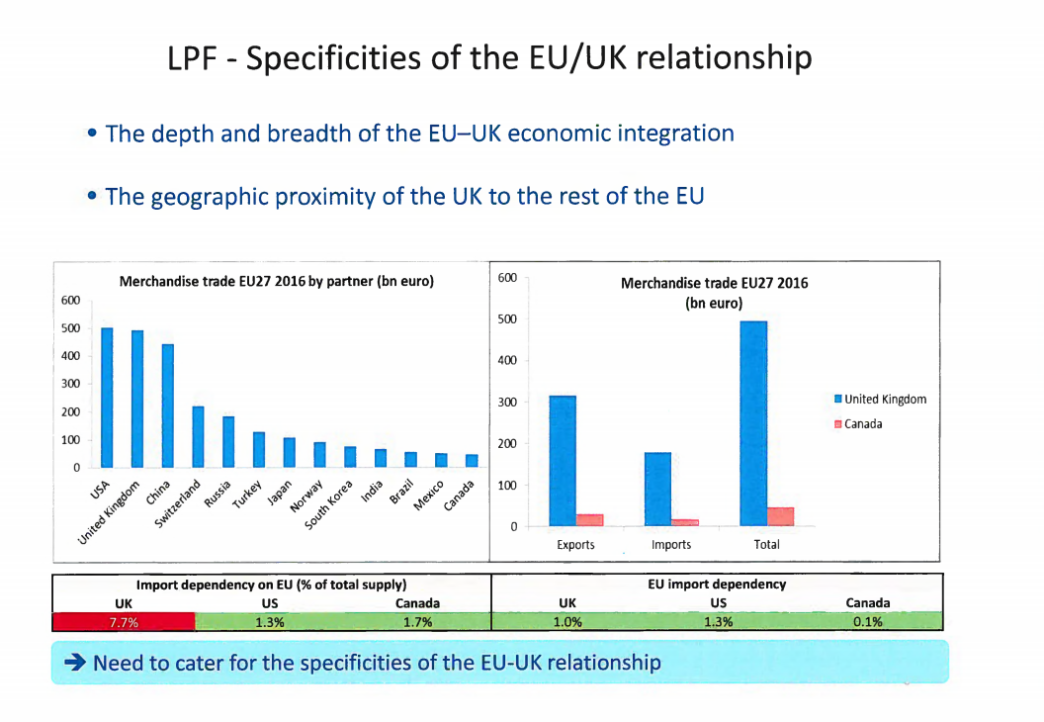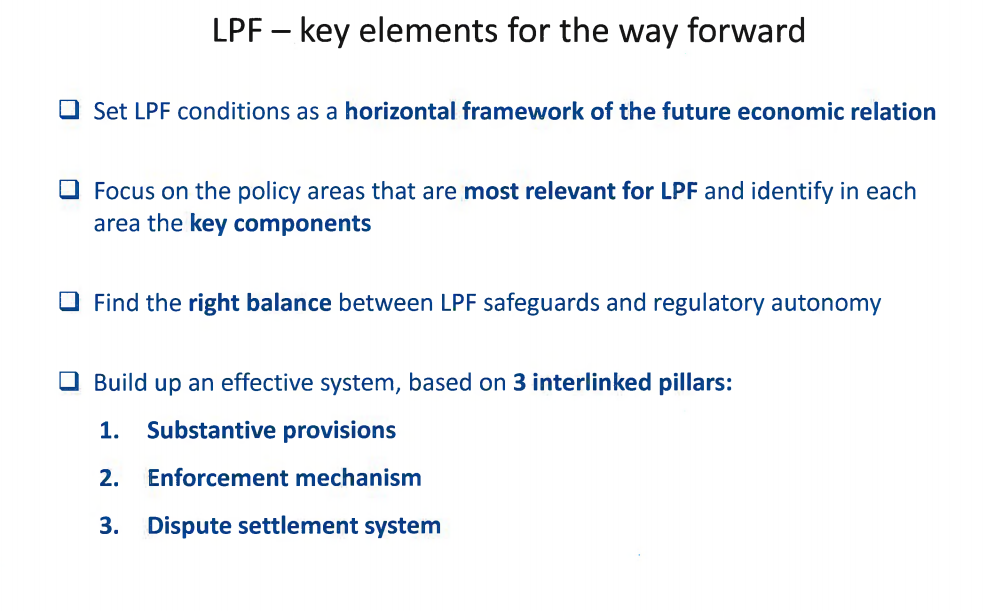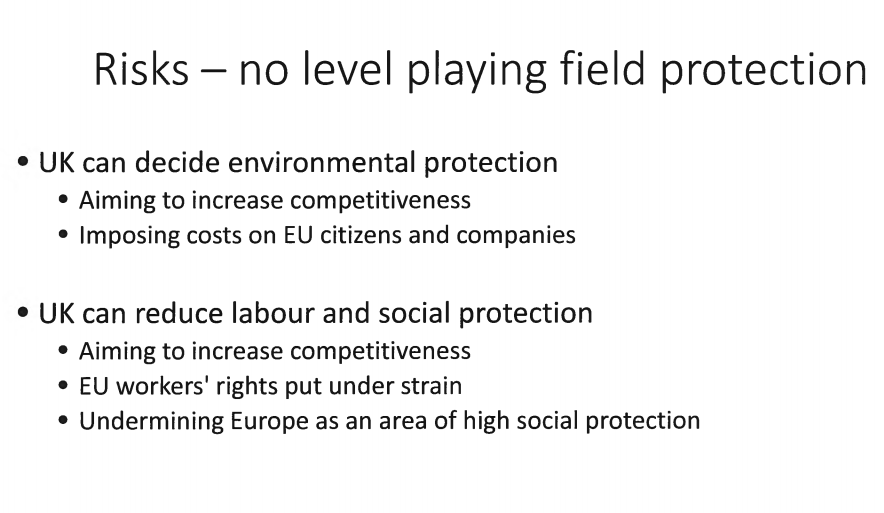The EU hints at what it means by ‘Canada plus’ for post-Brexit trade
EU nervousness about the risks of UK regulatory divergence could be an opportunity for the Government.
Newly-released slides from the European Commission reveal it fears regulatory competition from the UK after Brexit. This could be a useful lever for the UK in negotiations, says Jill Rutter.
The EU doesn’t think the Canada deal works for a future relationship with the UK
The UK wants a deep and special partnership with the EU, asking for deeper integration into the EU market than afforded to third countries in the past. That is the UK's rationale for having better access than other third countries have been granted.
But the ‘level playing field’ (LPF) slides just released by the European Commission, for internal discussions on the future trade relationship, show that the Commission draws a rather different conclusion. It is concerned about the prospect of regulatory competition from a large country that is geographically close and interlinked with the European economy.

The EU is scoping up the institutional framework needed ensure a level playing field
The Commission document sets out an approach based on “non-lowering” of standards with provisions on good governance, continued information exchange on tax, and a “non-regression” clause for environment and labour standards.

This is to be underpinned by processes for surveillance (a joint committee), dispute resolution (political and judicial) and an enforcement regime. None of this will come as any surprise to those who have read our report Trade after Brexit.
The EU makes it clear that it will try to go beyond existing free trade agreement provisions in a UK deal
The EU fears that the UK could try to gain competitive advantage by undercutting EU regimes – whether by lowering corporate taxes, reducing social and environmental protections or offering more extensive state aids. It is already setting out how it plans to rein in the UK.
On state aids, the Commission notes that given the proximity and integration of the UK-EU economies, “international rules do not adequately address the (potential) distortive effects of subsidies on investment, trade and competition”. So, it wants any agreement to include “robust provisions” but also holds out the prospect of “effective, swift, unilateral remedies within and outside the agreement”.
On tax, its notes that the “UK [is] likely to use Brexit to gain competitiveness” – and that the US tax reform “could increase competitive pressure on the UK”. The key risk is “targeted tax measures to attract business and investment”.
The Commission floats various ways of keeping the UK in line on tax: a good-governance clause, some binding requirements on information exchange and a code of conduct on business taxation (mirroring the existing EU code). But again, its points to the sanction of last resort: the EU’s “unilateral listing process for uncooperative tax jurisdictions”.
Finally, the Commission sets out fears about the UK on environmental and social protection:

It points to a potential € 4.7 billion annual gain for UK industry as a result of reduced environmental protection, which in turn could mean “increasing pollution for neighbours”.
On the labour side, it catalogues a list of potential areas where the UK might seek to lower standards. Here the proposals on how to counter undercutting are much less developed, but the Commission does discuss a “non-regression” clause based on pre-Brexit levels and a “joint commitment” to a high level of protection.
It is a long way from the sort of ‘plus’ we are looking for in a free trade agreement
This emphasis on adding more obligations to a CETA-style deal is not what UK ministers have in mind when they talk about a bespoke deal. They want to add provisions for better access to allow service trade to continue after Brexit.
Indeed, Brexit Secretary David Davis accused Michel Barnier, the EU’s Chief Negotiator for Brexit, in early January of indulging in his own form of cherry picking by seeking to include “some areas of our economic relationship but not others” in a future deal.
EU nervousness about the risks of a diverging UK could be an opportunity for the UK
It is possible to see this all as a threat to the UK, but smart negotiation could turn it to the UK’s advantage.
The Commission is clearly worried about the risks of a diverging UK – and a UK without a deal with the EU is more likely to diverge radically. This illustrates why the EU itself would benefit from a “managed divergence model”, as we set out in Trade after Brexit, to avoid a rupture and radically different relationship on regulation.
But the Government can only use that opportunity if it has a clear view of what it wants, and addresses the trade-off between access and alignment.
- Supporting document
- IFGJ5896-Brexit-Report-171214-final.pdf (PDF, 601.48 KB)
- Topic
- Brexit Regulation
- Keywords
- Trade
- Country (international)
- European Union
- Publisher
- Institute for Government